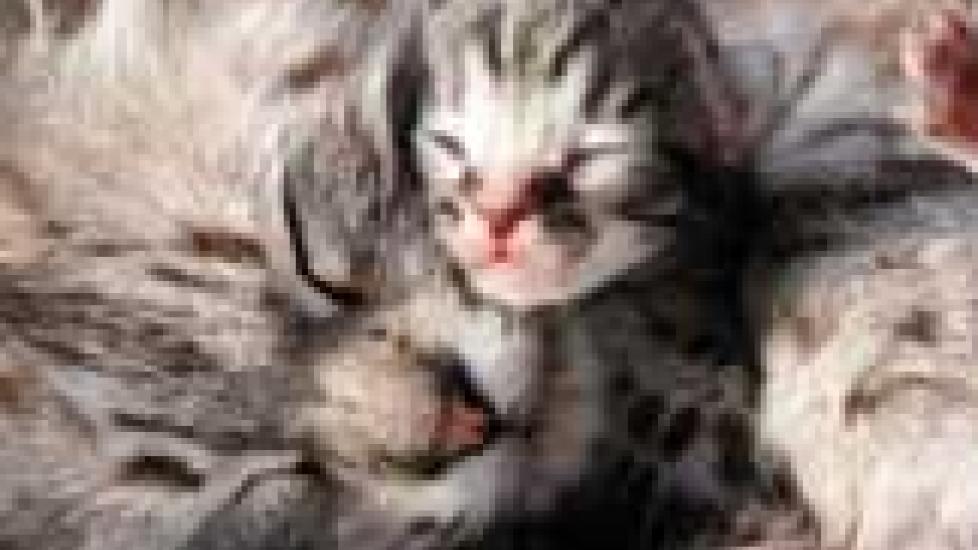Caring for a Pregnant Cat
Before we start talking about how to care for a pregnant cat, let me say first that I am not encouraging you to breed your cat unless you are a responsible breeder with a wide base of knowledge about your chosen breed.
Breeding your cat so that your children can see the "miracle of life," because you think your cat needs to experience having a litter of kittens, or because you just have to have one of your cat’s kittens is unacceptable.
That being said, I understand that there may be legitimate circumstances under which you need to take care of a pregnant cat. You may have adopted a pregnant stray cat, or you may be fostering a pregnant cat. If that’s the case, I salute you for taking on the responsibility.
One of the most important things your pregnant cat will need is good nutrition. She’ll need additional calories as she progresses through her pregnancy. After all, she’s eating for more than one. Choose a food suitable for reproduction. Kitten food is usually a good choice. Plan on increasing the amount of food provided as your pregnant cat nears her term.
Shortly before her due date, provide your cat with a box or similar shelter where she can give birth to and care for her kittens. Line the box with soft blankets or towels. Choose materials that are easy to launder and/or easy to clean or replace. Place the box in a quiet, familiar location, and show your cat where the box is located.
Don’t be surprised if your pregnant cat chooses a location other than the box you have prepared to actually have her kittens. If so, don’t be afraid to move the kittens to the prepared box once they’re born. It’s perfectly fine to handle the kittens; handling them will not cause your cat to abandon or injure her kittens.
When your pregnant cat’s time comes and she’s ready to give birth to her kittens, watch her closely. It’s likely she’ll be able to deliver her kittens without your help. However, there are some things that should prompt you to seek veterinary care.
- If your cat is having active contractions and has not passed a kitten within 15-20 minutes, seek veterinary care.
- If you see part of the fetus or placenta protruding from your cat’s vulva and she does not pass the kitten very quickly (within a minute or two), get your cat to her veterinarian.
- It’s not abnormal for a cat to rest between having kittens. However, if more than 2 hours passes between kittens, consult with your cat’s veterinarian.
- It’s a good idea to have your cat examined by your veterinarian when she finishes queening as well.
It’s normal for your cat to have a discharge from her vulva after the birth of her kittens. However, if the discharge becomes foul-smelling, consult with your veterinarian.
Your cat will likely spend most of her time with her new kittens. For the first few weeks of their life, the kittens will depend on their mother to help regulate their body temperature and keep them warm. She will also clean the kittens regularly and will eat their excretions. This is normal. However, if your female cat is not eating her food normally or is otherwise acting abnormally, have her examined by her veterinarian. If she is vomiting or experiencing diarrhea, she may be ill. Likewise, if she is having tremors or seizures, she needs prompt medical care.
Around 4-5 weeks of age, you can start introducing your kittens to solid food. Once they are eating solid food readily, usually around 6-8 weeks, you can begin weaning them. However, socialization is extremely important to the development of your kittens, especially during the first 8-10 weeks of their lives. Kittens should remain with their litter mates, if possible, until at least 8 weeks of age.

Dr. Lorie Huston
Image: Orhan Cam / via Shutterstock
